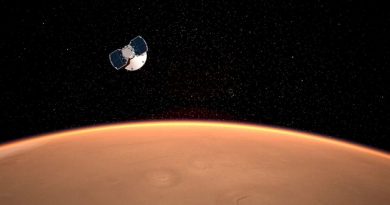Russian cosmonaut offers to share the experience with Indian astronauts
A Russian cosmonaut has offered to share his country’s experience and best practices in the field of space exploration with Indian astronauts who are designated to go on India’s first human space mission in 2022.
Interacting with Indian students during the recent Festival of Science and Culture here organized by Russian state-run nuclear energy corporation Rosatom, cosmonaut Mikhail Kornienko said that yoga could be a part of a rehabilitation programme for astronauts after returning from a space mission.
Kornienko, along with American astronaut Scott Kelly, spent a staggering 342 days in space on the International Space Station (ISS) in 2015.
“We welcome Indian cosmonauts to Russia. We are ready to share our experience and best practices with them. All cosmonauts share their achievements with partners, adding something of their own to space exploration. and Indian cosmonauts can add something,” he said.
The Indian Space Research Organisation’s (ISRO) ambitious human space mission project ‘Gaganyaan’, announced by Prime Minister Narendra Modi in his Independence Day address earlier this year, envisages sending three Indians to space by 2022.
The Russian noted that bones and muscles could severely decay in space “and this is a major problem for us cosmonauts after landing”.
“Yoga, for example, can be very useful. For example, some yoga elements can help maintain strength and flexibility of the bones and muscles,” he added.
Selected for Russia’s cosmonaut training in 1998, Kornienko has spent a total of 516 days in space and has also carried out two spacewalks lasting over 12 hours in his extra-terrestrial career.
Lauding the progress made by the Indian space programme, Kornienko called for similar joint efforts by countries like Russia, India, and China.
According to official sources in New Delhi, besides ‘Gaganyaan’, India and Russia are currently engaged in talks to establish ground stations for Russia’s global positioning system (GPS) Glonass and for the Indian GPS NaVIC.
Under an agreement signed between India and Russia in 2015, the ISRO and Russian space agency ROSCOSMOS have agreed to work together in space research, including satellite navigation, launch vehicle development and critical technologies for human space flight programmes.




